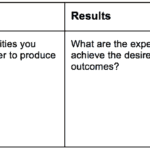Why Private Businesses — Not Non-Profits and NGOs — Present the Only Scalable Solution for Last-Mile Electrification in Africa
In the pursuit of increasing energy access in Africa’s most remote regions, where millions lack reliable electricity, discussions often revolve around the effectiveness of different approaches. That was the topic of a recent NextBillion article titled “Private Business Alone Can’t Bring Energy to the Last Mile: Why Philanthropy Should Shift Its Focus to Scalable Non-Profit Models,” in which Aneri Pradhan at New Energy Nexus argues that funding non-profit models with a proven ability to scale is a more effective way for philanthropy to address this challenge than subsidising untested private sector approaches.
It’s commendable to explore diverse approaches to energy access, and non-profits and NGOs — along with their philanthropic funders — have made some encouraging progress in boosting electrification across the continent. But they’re not the best solution for reaching excluded African communities: The private sector’s role is not just important — it’s critical for establishing lasting, scalable impact.
Companies offering off-grid solar solutions have made significant inroads in Africa, accounting for most of the estimated 150 million solar kits that have been distributed across the continent since 2010. While the sector has faced a number of challenges and setbacks, due to reasons that range from lack of on-the-ground experience in Africa to unviable business models, it has matured significantly over the past decade and a half. These companies are increasingly able to operate sustainably in the hardest-to-reach locations, as demonstrated by our work at Ignite Power (where I serve as CEO): We’re bringing extremely affordable products to these last-mile communities thanks to our unique technology, various consumer financing schemes and support from development finance institutions — and we’re not the only business that’s doing so.
Why Philanthropy and non-profits are small-scale solutions to energy poverty
Acknowledging the importance of philanthropy and non-profit models in achieving universal electrification is paramount. However, dismissing the effectiveness of businesses in addressing energy poverty overlooks the remarkable progress made by numerous enterprises in electrifying remote regions in Africa. While non-profits have made valiant efforts and some have gained traction, history shows that most have struggled to achieve scalability. This is because — despite its noble intentions and occasional successes — the inherent limitations of the non-profit model often hinder widespread replication and sustainability.
Conversely, energy businesses have demonstrated an unparalleled ability to scale operations and deliver impactful solutions. And though many of these companies initially focused on urban and peri-urban locations where it is much easier and more profitable to operate, the falling prices of solar technology combined with the growing focus on energy access in development budgets across the continent are encouraging more companies to expand to the last mile. The profit motive drives these businesses to continuously innovate and improve their products and services, optimise their operations, and extend their reach — motivated by the knowledge that only the most effective businesses will survive the growing competition across the sector. This relentless pursuit of efficiency and innovation ensures that private companies can deliver more effective and sustainable energy solutions at greater scale. NGOs, however, may lack the same level of motivation for efficiency and innovation, as their primary goal is often service delivery rather than financial performance.
Private companies also have the advantage of mobilising the significant financial resources necessary for large-scale projects. They can attract investment from various sources, including venture capital, private equity and debt financing. This capacity for raising capital allows them to invest in the necessary infrastructure and technology to deliver energy solutions at scale. In contrast, NGOs often rely on limited philanthropic funding, which can be sporadic and insufficient for large-scale, long-term projects. And this challenge will persist even if — as Pradhan advocates — philanthropic funders shift more of their focus to the non-profit sector.
This financial flexibility extends to customers, as private energy businesses also possess the critical ability to leverage innovative consumer financing mechanisms, such as pay-as-you-go (PAYG) systems and microfinance. These options enable businesses to democratise access to energy while ensuring affordability for even the most marginalised communities. By empowering end-users and providing ownership and agency over their energy consumption, these market-driven approaches enhance scalability and sustainability.
When they’re looking to expand their operations, private companies have another key advantage over NGOs, because they become more efficient as they grow due to economies of scale. As businesses grow, they can reduce per-unit costs through bulk purchasing, streamlined operations and optimised logistics. This efficiency is crucial for making energy solutions affordable for consumers. On the other hand, NGOs, while effective in smaller projects, often face challenges in maintaining efficiency and effectiveness when attempting to scale up. This is due in part to their bureaucratic and administrative costs, which can lead to resource wastage, limiting their scalability.
The Challenges Facing Energy Businesses in Africa
However, despite these advantages, the journey for energy businesses working in Africa has been fraught with challenges. Some companies have faltered due to flawed models, prohibitive costs, inadequate market research, inappropriate technology choices and insufficient understanding of local contexts. Moreover, the high upfront capital required for infrastructure development in remote areas has often deterred potential investors.
In response to these challenges, partnerships between businesses, governments and civil society — including the philanthropic funders Pradhan urges to shift their focus away from these companies — are crucial for fostering scalability and sustainability. These types of collaborative efforts can facilitate knowledge exchange, resource sharing and policy advocacy, creating an enabling environment for businesses to thrive. By aligning their interests and leveraging their complementary strengths, these stakeholders can amplify impact and accelerate progress toward universal energy access.
Additionally, the market landscape facing these businesses has evolved significantly over time. Many of these businesses have refined their approaches, learned from past failures and leveraged emerging technologies. They’ve also benefited from the growing trend of market consolidation, leading to a more mature market where companies can establish robust, scalable models to tackle energy poverty head-on. In the coming years, this trend is likely to result in a solar sector led by a small number of larger companies that are able to successfully serve even the most isolated communities.
We’ve seen this trend in practice at Ignite Power, a climate-technology platform specialising in developing, deploying and operating clean infrastructure solutions across emerging markets. Among our products are solar home systems that bring electricity to Africa’s hardest-to-reach communities. Since our founding in 2014, we have successfully developed highly efficient and replicable operations, a strong reputation, and a capable team, making us the continent’s most competitive solar solutions provider: In three of the countries where we currently operate, we offer PAYG solar home systems for as low as $1 per month. We have been an active participant in the market consolidation I mentioned above, as Ignite successfully acquired two solar companies during 2023, allowing us to increase our reach from four to nine African countries. Thanks to the efficiencies this has enabled — and the affordability, scalability and profitability of our business model — we’ve been able to impact more than 2.5 million people with our products and services, and we’re aiming to reach 100 million by 2030.
Moving Toward a Collaborative Approach to Energy Access in Africa
But Ignite Power is just one of many energy businesses gaining traction on the continent. In recent years, the majority of solar installations in Africa have been driven by private companies. These enterprises have been able to leverage their ability to mobilise capital, innovate and scale operations more effectively than their counterparts in the non-profit sector.
In light of these advantages, the argument that NGOs are inherently better at addressing energy poverty reflects a non-mature viewpoint. This perspective often stems from the belief that aid and non-profit models are more ethical or effective ways to address development challenges. However, our experience reflects a very different reality: Establishing a profitable business in the hardest-to-reach communities shows global investors that these markets are worthwhile, leading to more investments and more companies entering new sectors in the region. Given the vast need for energy services in Africa, tapping private business and investment capital is not only the most effective option, it’s the only option that can hope to reach that sort of scale. Relying primarily on philanthropy and non-profits for last-mile and deep-rural electrification will only perpetuate dependency and fail to foster sustainable development in these communities. Instead of seeing NGOs and businesses as opposing forces, a more mature view recognises the need for a collaborative approach where the strengths of each can be leveraged to gradually expand energy access across the continent. But the ultimate goal must be to create a sustainable ecosystem where businesses can thrive, attract investment and drive development, reducing the long-term need for external aid.
NGOs are an important driver of Africa’s development, and they should be supported, but meeting the challenge of universal electrification is far beyond their abilities. By 2030, there will still be 560 million people in sub-Saharan Africa living without electricity access — and population growth rates are outpacing current electrification rates. Reaching these populations will require the scalability, efficiency and sustainability that only private businesses can provide. It’s essential to harness the transformative power of business to illuminate the last mile and catalyse socioeconomic development — not just in Africa, but worldwide.
Yariv Cohen is the co-founder and CEO of Ignite Power.
- Categories
- Energy, Technology



